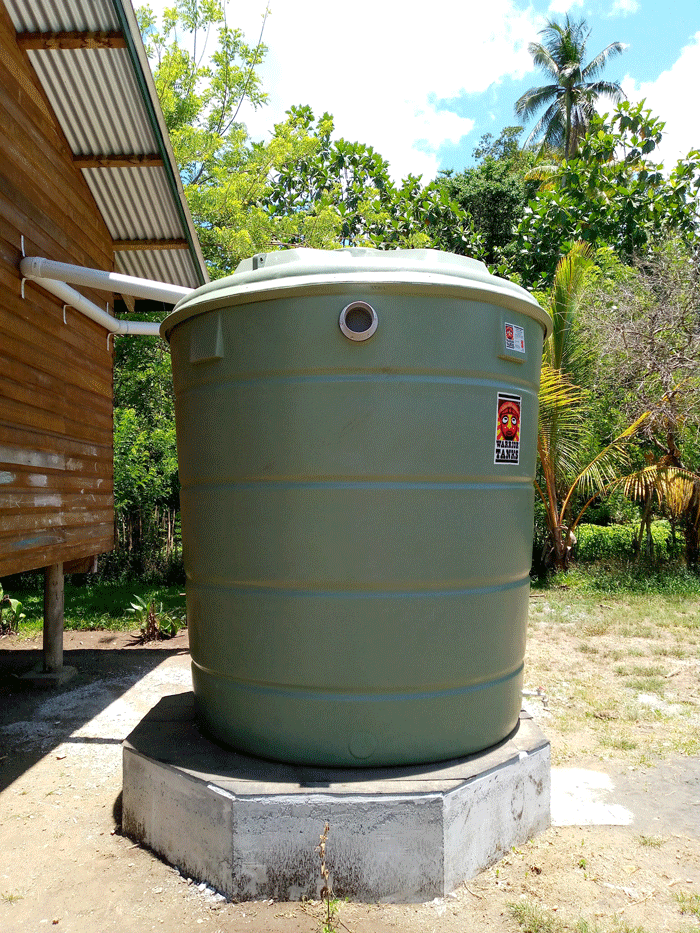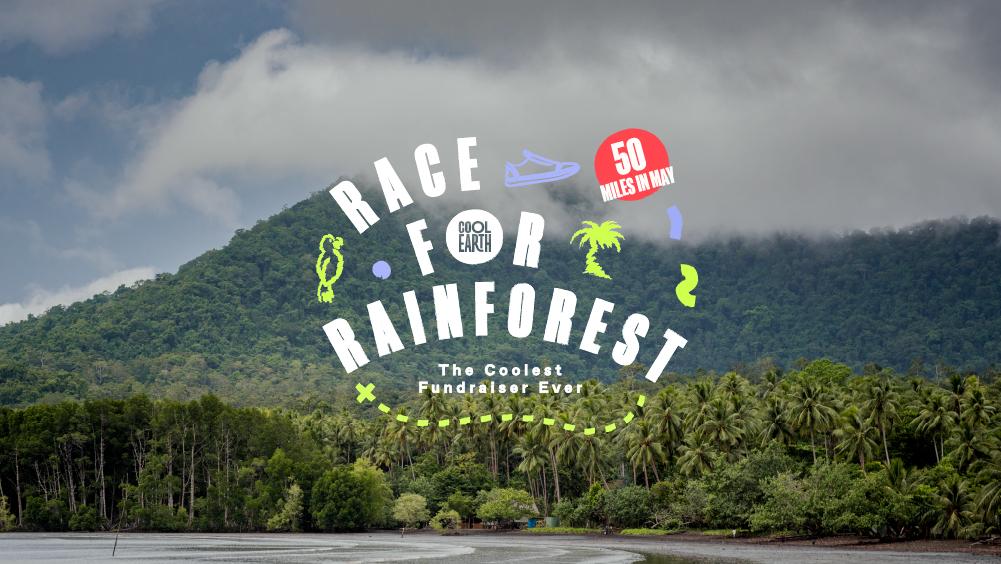World Water Day – water tanks for every household
This World Water day we hear from Ricky Imanuakan, Livelihood Programme Coordinator in our Papua New Guinea office, about the importance of accessing clean water and the WaSH project.
Realities of safe water access
Most of the population of Milne Bay Province of Papua New Guinea live a traditional lifestyle. Many are living below the poverty line with few opportunities for employment or enterprise. Access to clean water and poverty are inextricably linked. Poor health hinders people’s livelihood and stops people from being able to fully participate in their communities. The majority of the population in Milne Bay don’t have access to ‘improved’ water supplies, meaning waterborne diseases such as diarrhoea and skin disease are rife. In the partnership areas of Wabumari and Gadaisu, 92% of people surveyed in 2016 believed their drinking water source was unsafe and 87% said they were not happy to let their children drink it.
Rural Village Water Project
The Rural Village Water Project aims to improve health on both the family and overall community level, and in turn enhancing productivity, by providing access to a safe water supply.
Water collecting remains largely the responsibility of women and children who walk long distances to collect from wells, springs and rivers. By reducing the time taken to access clean water, women are able to contribute to the sustainable development of their community.
To combat the lack of education within communities regarding sanitation and hygiene, which contributes to illness and mortality, workshops and training are also provided to raise awareness of the relationship between hygiene, sanitation and health.
Cool Earth is implementing a project that not only provides long term benefits to forest and people but also addresses their immediate needs. This is our Water, Sanitation and Hygiene (WaSH) project in Papua New Guinea, where we can see changes in people’s health and wellbeing almost straight away.
In collaboration with Rural Water Supply Sanitation Project (RWSSP) under United Church Papua New Guinea (UCPNG) we delivered WaSH activities, in response to COVID-19, to Cool Earth’s projects sites and neighbouring communities. The outcomes of this project included 2649 people receiving COVID-19 information and adopting hygienic behavioural changes. And it didn’t end there, it also saw 1036 children having access to clean drinking water and handwashing.


Water tanks store clean improved water
Next phase of WaSH project
Cool Earth is currently delivering another major WaSH project targeting its four partnership communities that includes two schools. The project aims to improve access to clean water, sanitation and hygiene conditions of communities and promote local level sustainable operation and maintenance of the water and sanitation systems. As well as the schools, there will be a total of 90 household rainwater harvesting tanks that have already been delivered to two communities. These tanks are low maintenance and not vulnerable to salination like wells are when sea level rises.
The British High Commission were also interested in what Cool Earth was doing through its WaSH program, and funded three 3000 litre water tanks that are being installed in schools. The program also includes awareness raising and establishing WaSH facilities in schools.
Along with our partner, we advocate to governments, donors and the private sector to improve WaSH services in schools and to facilitate knowledge exchange and learning. Hygiene and the promotion of hygienic behaviour practices, like handwashing, especially in schools, will contribute to improved childhood health and school attendance, giving the long-term indirect benefit of countering marginalisation through improved education.
Healthy people participating in local decisions and traditional forest land use is what will protect our forest and climate.


If you want to help fund our WaSH project, which will see four new rainwater tanks installed in schools and health centres in our partnerships in Papua New Guinea, you can take on our Race for Rainforest challenge in May. Run, swim, walk or cycle 50 miles throughout the month and fundraise while doing so.
If this isn’t your thing, you can donate directly to the fundraiser here.
